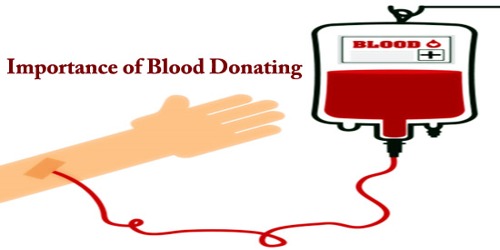Every day blood transfusions take place that saves lives of many people all over the world. Donating blood is good for the health of donors as well as those who need it. It is important that blood donation takes place in a hospital, a clinic or a blood bank, in the presence of medical experts. Donors should ensure that they are in good health to avoid any health issues post-transfusion to those who use it.
14th June is observed worldwide, as World Blood Donor Day to raise awareness among people regarding the requirement for safe blood as well as blood products like whole blood. A campaign of World Health Organization (WHO), this day is also marked by the heart-warming gesture of thanking each donor. Most importantly, on this day, the WHO organizes a campaign that invites people to donate blood. A person eligible to donate blood must fall in the age bracket of 17-60 years of age. They must weigh more than 50 kgs and have sound health. People suffering from diseases like diabetes, hypertension and more cannot donate blood.
Therefore, on World Blood Donor Day, they also appreciate blood donors for their contribution to making the world a better place.
Importance of Donating Blood –
Every day, people lose blood in accidents and injuries and desperately require fresh blood to compensate for the dangerous loss. The problem is that the body can produce its own blood to a certain limit, so the external sources are needed to help the organism to recover. According to the statistics, one in seven hospitalized patients need blood, and it is especially important for treating cancer and injuries and supporting the body during the surgery. Because the blood cannot be manufactured in the clinical setting, there is a high demand for eligible donors ready to donate their blood regularly (American Red Cross, 2017).
Donating blood can help in treating patients suffering from cancer, bleeding disorders, chronic anemia associated with cancer, sickle cell anemia, and other hereditary blood abnormalities. It is important to know that human blood cannot be manufactured, people are the only source of it and that is why it is important to donate blood and help those who need it. It is also possible to store our own blood for our future needs. Make sure the blood is stored at a good blood bank.
There are many cases when blood is needed to save people’s lives and make treatment more effective and timely. For example, women with complications of pregnancies strongly require transfusion to survive after traumatic childbirth (WHO, 2017). Young patients with severe anemia also need blood to recover, and so do cancer patients and people undergoing serious surgeries. Quite often, blood is needed to help people with severe traumas received in traffic accidents or natural disasters (WHO, 2017). To ensure that all these people receive timely treatment, a hospital should have the regular blood supply because fresh blood can be stored for a limited period of time.
Therefore, it is critical for healthcare providers to encourage eligible (healthy) people to donate their blood. It is important to understand that the decision to give one’s blood can save someone’s life, while it will cost nothing to the donor. Donors need to realize that they help real people, who rely on their decision and have no other choice than to wait for someone to give their blood (American Red Cross).
A mini health exam that includes a checklist for diseases related to blood pressure and infectious diseases should be conducted before initiating the collection of blood. Those who have medical conditions such as AIDS and hepatitis should not donate blood. People who have taken vaccinations or have undergone any surgery or have cancer, diabetes, cold, and flu should consult health experts before donating blood. Pregnant women should seek expert advice before donating blood.
Blood can neither be artificially produced nor can it be stored beyond a definite time. Amidst the three components of blood, plasma can be preserved for years, red blood cells can be stored for 42 days and platelets can be kept only for 5 days. Consequently, the rush for blood is always on the high in hospitals and the only way to meet this requirement is through donation.
Contrary to the common misconception, blood donation is a fulfilling and even beneficial process for donors. The main benefit is that a person receives a free and quick checkup, which allows making sure that everything is fine. Another benefit is that a donor may feel the sense of pride for helping to save someone’s life (American Red Cross). This experience makes people more conscious and empathetic and allows them to feel their contribution to the society, which positively affects their emotional well-being and self-esteem. Thus, one may summarize that blood donation is beneficial for both patients and donors.
Information Sources:
















